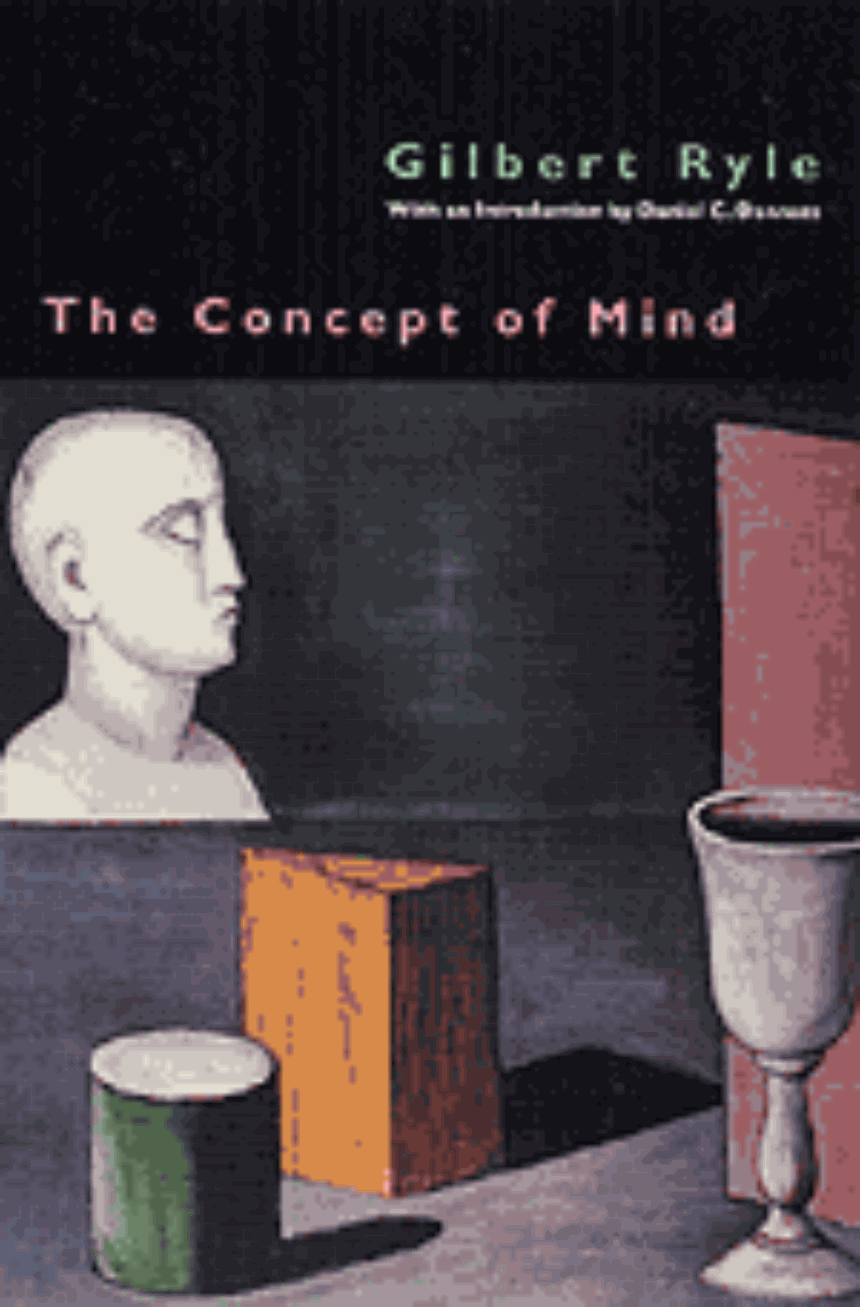The Concept of Mind
This now-classic work challenges what Ryle calls philosophy’s "official theory," the Cartesians "myth" of the separation of mind and matter. Ryle’s linguistic analysis remaps the conceptual geography of mind, not so much solving traditional philosophical problems as dissolving them into the mere consequences of misguided language. His plain language and esstentially simple purpose place him in the traditioin of Locke, Berkeley, Mill, and Russell.
Table of Contents
Introduction
I. Descartes’ Myth
1. The Official Doctrine
2. The Absurdity of the Official Doctrine
3. The Origin of the Category Mistake
4. Historical Note
II. Knowing How and Knowing That
1. Foreword
2. Intelligence and Intellect
3. Knowing How and Knowing That
4. The Motives of the Intellectualist Legend
5. ’In My Head’
6. The Positive Account of Knowing How
7. Intelligent Capacities versus Habits
8. The Exercise of Intelligence
9. Understanding and Misunderstanding
10. Solipsism
III. The Will
1. Foreword
2. The Myth of Volitions
3. The Distinction Between Voluntary and Involuntary
4. Freedom of the Will
5. The Bogy of Mechanism
IV. Emotion
1. Foreword
2. Feelings versus Inclinations
3. Inclinations versus Agitations
4. Moods
5. Agitations and Feelings
6. Enjoying and Wanting
7. The Criteria of Motives
8. The Reasons and Causes of Actions
9. Conclusion
V. Dispositions and Occurrences
1. Foreword
2. The Logic of Dispositional Statements
3. Mental Capacities and Tendencies
4. Mental Occurrences
5. Achievements
VI. Self-Knowledge
1. Foreword
2. Consciousness
3. Introspection
4. Self-Knowledge Without Privileged Access
5. Disclosure by Unstudied Talk
6. The Self
7. The Systematic Elusiveness of ’I’
VII. Sensation and Observation
1. Foreword
2. Sensations
3. The Sense Datum Theory
4. Sensation and Observation
5. Phenomenalism
6. Afterthoughts
VIII. Imagination
1. Foreword
2. Picturing and Seeing
3. The Theory of Special Status Pictures
4. Imagining
5. Pretending
6. Pretending, Fancying and Imagining
7. Memory
IX. The Intellect
1. Foreword
2. The Demarcation of the Intellect
3. The Construction, Possession and Utilisation of Theories
4. The Application and Misapplication of Epistemological Terms
5. Saying and Teaching
6. the Primacy of the Intellect
7. Epistemology
X. Psychology
1. The Programme of Psychology
2. Behaviourism
Index
I. Descartes’ Myth
1. The Official Doctrine
2. The Absurdity of the Official Doctrine
3. The Origin of the Category Mistake
4. Historical Note
II. Knowing How and Knowing That
1. Foreword
2. Intelligence and Intellect
3. Knowing How and Knowing That
4. The Motives of the Intellectualist Legend
5. ’In My Head’
6. The Positive Account of Knowing How
7. Intelligent Capacities versus Habits
8. The Exercise of Intelligence
9. Understanding and Misunderstanding
10. Solipsism
III. The Will
1. Foreword
2. The Myth of Volitions
3. The Distinction Between Voluntary and Involuntary
4. Freedom of the Will
5. The Bogy of Mechanism
IV. Emotion
1. Foreword
2. Feelings versus Inclinations
3. Inclinations versus Agitations
4. Moods
5. Agitations and Feelings
6. Enjoying and Wanting
7. The Criteria of Motives
8. The Reasons and Causes of Actions
9. Conclusion
V. Dispositions and Occurrences
1. Foreword
2. The Logic of Dispositional Statements
3. Mental Capacities and Tendencies
4. Mental Occurrences
5. Achievements
VI. Self-Knowledge
1. Foreword
2. Consciousness
3. Introspection
4. Self-Knowledge Without Privileged Access
5. Disclosure by Unstudied Talk
6. The Self
7. The Systematic Elusiveness of ’I’
VII. Sensation and Observation
1. Foreword
2. Sensations
3. The Sense Datum Theory
4. Sensation and Observation
5. Phenomenalism
6. Afterthoughts
VIII. Imagination
1. Foreword
2. Picturing and Seeing
3. The Theory of Special Status Pictures
4. Imagining
5. Pretending
6. Pretending, Fancying and Imagining
7. Memory
IX. The Intellect
1. Foreword
2. The Demarcation of the Intellect
3. The Construction, Possession and Utilisation of Theories
4. The Application and Misapplication of Epistemological Terms
5. Saying and Teaching
6. the Primacy of the Intellect
7. Epistemology
X. Psychology
1. The Programme of Psychology
2. Behaviourism
Index
